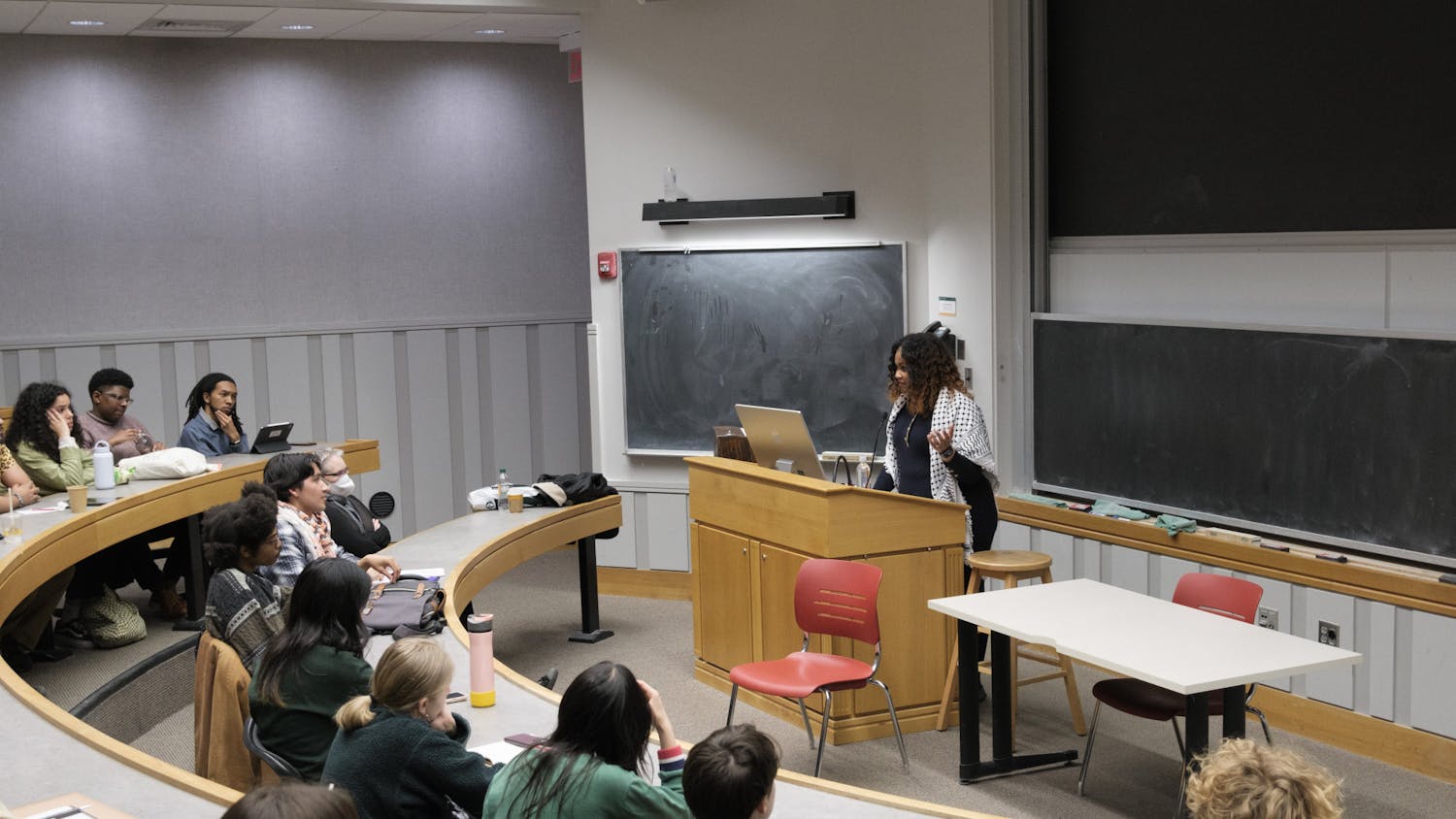The “Moving Dartmouth Forward” presidential steering committee, convened in May by College President Phil Hanlon, worked this summer to solicit feedback and consult experts about reducing binge drinking, sexual assault and exclusivity. Its proposals will be announced this fall and opened to public discussion.
The presidential steering committee is expected to present Hanlon with its recommendations by the end of the year, part of a timeline that was recently extended. Hanlon was originally scheduled to present to the Board in November, but is now expected to do so in January 2015.
Committee member John Damianos ’16 said the committee was chosen as a “board of researchers” rather than “a board of experts” to improve College life.
The committee met several times a week with campus leaders and national experts.
To gather student opinion, student body vice president and committee member Frank Cunningham ’16 said he and fellow students on the committee held discussions with dozens of their peers.
In these meetings, student committee members also talked to peer advisor groups, Safety and Security director Harry Kinne, as well as representatives from Dick’s House, the Office of Residential Life and the Sexual Assault Awareness Program.
The committee also solicited opinions from the Greek community, including the Greek Leadership Council, the Inter-Fraternity Council and the Panhellenic Council, along with sorority and fraternity members.
Damianos said he has noticed a change in campus discourse, pointing to more students talking about reducing harmful behaviors.
“People want change. Campus is buzzing,” he said. “It’s an exciting time to be here, and the Class of 2018 is witnessing a very new Dartmouth.”
Committee chair and English professor Barbara Will wrote in an email that binge drinking, sexual assault and exclusivity are issues many find difficult to discuss, and though these behaviors are “dangerous and damaging,” reaching a consensus on solutions is challenging.
“These behaviors occur behind closed doors, after hours, in unguarded moments,” Will wrote. “Talking about these behaviors is not something a lot of people, students or anyone else, feel comfortable doing.”
Throughout the summer, the steering committee also solicited ideas online.
In late August, student group Improve Dartmouth: On the Ground prepared a report for the presidential steering committee that listed 250 ideas aimed at reducing high-risk drinking, sexual assault and exclusivity, summarized from submissions by more than 500 students. Ideas included offering more gender-neutral spaces for students to casually drink, requiring a sexual assault course for freshmen and strengthening mentorship programs.
Thirty-six submissions suggested making all sororities local, making this the report’s most frequently mentioned idea. Advocates said the change would move some parties into female-dominated social spaces.
Ideas were taken from 740 submissions on the Improve Dartmouth: On the Ground website between May and July. Suggestions were posted on the website as part of a series of dinners that Improve Dartmouth: On the Ground hosted with 36 student organizations, in addition to five sessions open to campus.
The report also lists student responses to what the group calls “root causes” of dangerous behaviors, identifying the “Animal House” (1978) image as a cause of binge drinking, male-dominated social spaces as a cause of sexual assault and the Greek system as a cause of exclusivity, among other factors.
Earlier in August, the presidential steering committee released a summary of 1,673 online suggestions it had garnered. Abolishing Greek life was the most popular submission received online, receiving more than 250 suggestions. Alumni comprised the vast majority of all respondents. In the Improve Dartmouth: On the Ground report, eight submissions advocated for eliminating the Greek system.
In addition to meeting with students, staff and soliciting feedback online, the committee met with national experts, including presenters at the College’s July National Summit on Sexual Assault, University of Washington health psychologist Jason Kilmer, who specializes in substance abuse research, health and social justice college consultant Alan Berkowitz and sexual assault researcher and forensic consultant David Lisak.
Cunningham said that in the fall the committee plans to reengage with the remainder of the student body, since it worked primarily with members of the Class of 2016 during the summer.
“I think everyone will feel it when they come back on campus,” he said. “There’s been a shift and everyone realizes that it’s time for us, the students, to step up and take responsibility for our home and this place that we love.”
Math professor Craig Sutton, physics and astronomy professor Ryan Hickox, senior assistant dean for student academic support services Deborah Tyson, senior associate athletics director for peak performance Drew Galbraith, Association of Alumni president Susan Finegan ’85, John Osborn ’88, Kayla Wade ’16 and Kelsey Weimer ’16 also sit on the committee.
Finegan, Osborn, Sutton, Tyson, Wade and Weimer did not respond to requests for comment by press time. Galbraith and Hickox declined to comment.



